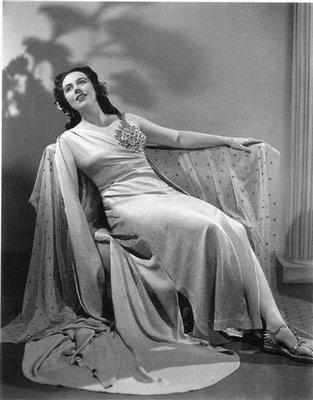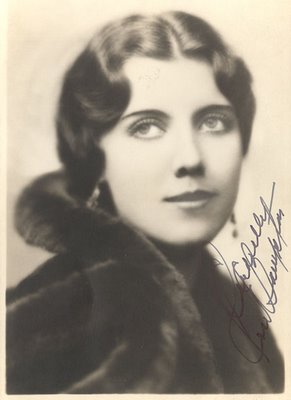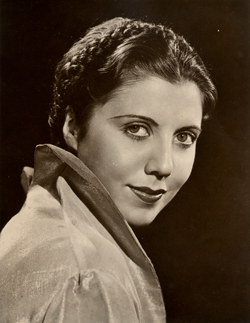She WAS a great singer, after all
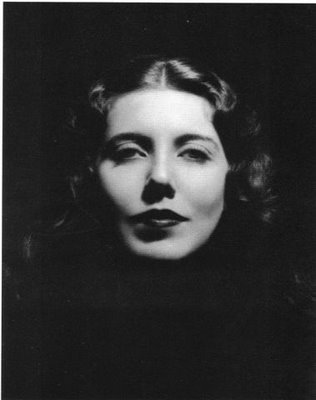
I followed my own advice from my last posting and sought out some more Rose Bampton. In fact, that very afternoon, I went to Academy Records and chanced upon a live recording of her Marschallin. It's from the Teatro Colon, October 8, 1947, with Erich Kleiber conducting.
The sound sucks. But it's an interesting performance.
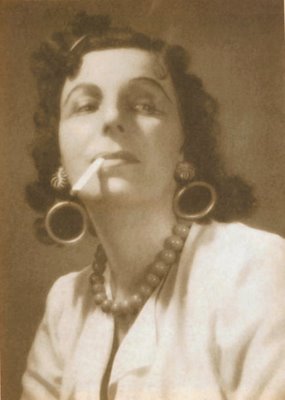 Elsa does Carmen
Elsa does CarmenElsa Cavelti is the Octavian. She's a Swiss mezzo, not terribly well-known, most celebrated for her 1951 recording of Das Lied von der Erde with Otto Klemperer. She makes a surprising good Octavian. She does not strain at all in the high reaches and has a wonderful vocal characterization.
The Sophie is the hitherto unknown to me Olga Chelavine. She is more than serviceable, if not quite ethereal enough. According to one source I found, she was born in Russia, and according to another, she was born and died in Buenos Aires. So yeah, Olga = Russian, Chelavine = Argentinian. Whichever nationality and wherever she was born, she's not bad at all. She's the Papagena on a live Beecham Zauberflöte. Her repertoire included Wellgunde, Yniold, Sophie in Werther: that kind of stuff. The end of the final duet, she is painfully flat, but I have heard live performances in which better singers do it worse! I also heard the execrable Christine Schäfer at the Deutsche Oper sing the most charmless Sophie I have ever heard. It didn't matter if her high B was in tune or not at the end, since I wasn't able to actually hear it. I did hear two phrases from her over the course of the evening, both in the second act, and neither one good). So I'll take a flat high B at the end over miscast charmlessness.
Emmanuel List is the Ochs, and since I really can't stand the character's music, I generally don't listen to much of his role. But he's certainly a familiar name and he sounds like the Viennese bumpkin he should.
Good as they are, it is Rose who is the revelation. She soars in the trio and she dedicates herself with great delicacy and individuality to the Marschallin's music. As with all great Marschallins, it is through the words in particular that she creates a memorable characterization. In fact, I shed a few tears upon hearing her sing "Heut' oder morgen". It was a cry from the soul, which was quickly put back in check. Her top is brilliant; she sings the pianissimo "Ros'n" at the end of the first act beautifully and her B at the climax of the trio is radiant.
A curious footnote: as she sings that pianissimo, she is nearly drowned out by a ringing sound that sounds for all the life of me like a pager or a cell phone. Surely the Argentinians were not carrying around such devices in 1947. I'm curious what the sound actually was.
I began listening to her Daphne as well, also from the Colon, though a year later. The sound is better, but here Bampton sounds rather throaty and metallic in her midrange, though the top is even more brilliant. I must listen to the rest of this before I render a final judgment.
For now, here is her monologue from the first act of Rosenkavalier. I hope you agree that this performance alone places her firmly in the great echelon of singers. Now when I think of her, I will remember her Marschallin first, the chicken blood second, if at all.
Labels: elsa cavelti, erich kleiber, marschallin, olga chelavine, rose bampton, rosenkavalier
